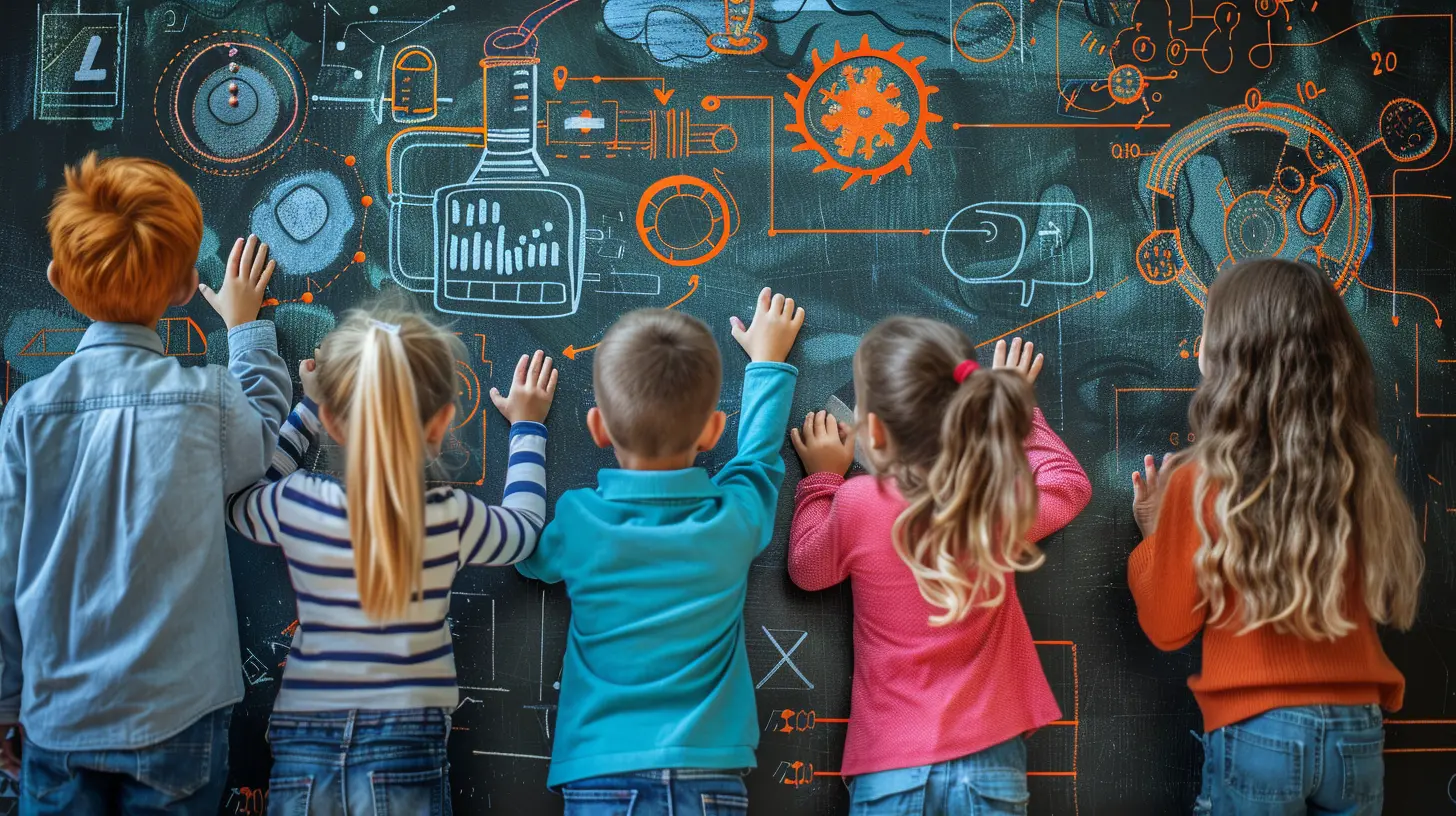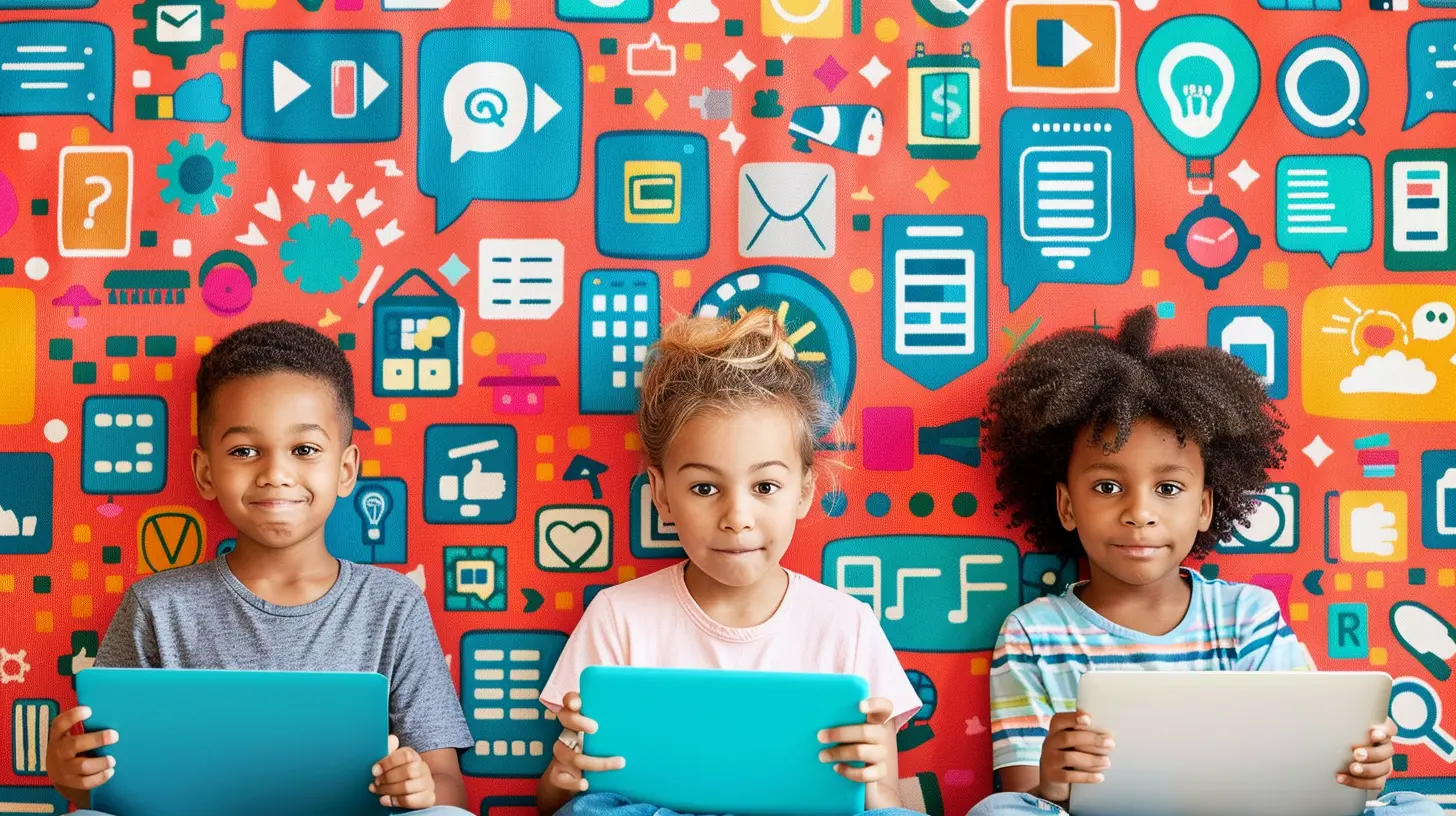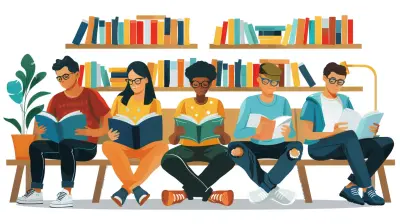Technology Tools to Enhance Learning for Gifted Students
22 July 2025
Gifted students are like high-performance engines. They’re capable of going faster, further, and deeper—only if we give them the right fuel and steering wheel. The cookie-cutter classroom just doesn’t cut it for these bright learners. They need something extra—something that challenges, excites, and pushes them to their full potential. That’s where technology swoops in like a superhero.
Let’s break down how tech tools can serve gifted learners. We'll explore everything from apps and websites to software and gadgets that can transform a gifted student’s learning journey. Whether you're an educator, a parent, or just a curious reader, buckle up—you’re in for an insightful ride.

Why Gifted Students Need Different Tools
Before diving into the techy stuff, let’s chat about the "why."Gifted students think differently. They’re curious by nature, often asking "what if?" long after the rest of the class has moved on. They learn fast, absorb information like sponges, and crave intellectual stimulation. If they’re not challenged, boredom kicks in—and boredom in education is a recipe for disengagement.
Simply put, they need depth, not just speed. That’s where technology becomes a game-changer.

How Technology Supports Gifted Education
Think of technology as a customizable toolkit. For gifted learners, it offers:- Individualized learning paths
- Faster pacing to match their speed
- Access to complex, advanced content
- Collaborative opportunities with like-minded peers
- Creative outlets for problem-solving and innovation
It’s not just about tricked-out gadgets or flashy apps. It’s about connecting students with tools that help them soar.
1. Adaptive Learning Platforms
Ever seen a student finish a lesson before the teacher finishes their coffee? Adaptive learning tech lets them move on at their own pace.Top Tools:
- Khan Academy – Offers self-paced learning with mastery tracking.- IXL – Covers a wide range of subjects with personalized skill mapping.
- DreamBox – Especially good for math; adjusts questions based on the student’s responses.
These platforms “listen” to the learner. If they struggle, they slow down. If they’re breezing through, they kick things up a notch. It's like having a personal tutor hidden in your laptop.
2. Online Courses and MOOCs
Just because a student is in 7th grade doesn’t mean they can’t handle 12th-grade material. Gifted minds often hunger for more, and online learning platforms are like an all-you-can-eat knowledge buffet.Favorites for Young Scholars:
- edX- Coursera
- Outschool
These sites offer courses from Ivy League schools and top-tier institutions—for free or at a low cost. Students can dig into quantum physics, philosophy, coding, or even ancient cultures. Why limit learning to a textbook?
3. Coding and Robotics Kits
Gifted students love building things—especially when it involves solving real-world problems. Coding and robotics open doors to logic, critical thinking, and creativity.Must-Try Tools:
- LEGO Mindstorms- Raspberry Pi
- Arduino
- Scratch (from MIT)
It’s not just about programming. It’s about understanding systems, working through failure, and bringing ideas to life. Think of it as digital Legos—just with a twist of electricity and code.
4. Creativity Tools
Gifted students aren’t always academic. Some might lean toward music, art, design, or storytelling. Thankfully, tech isn’t just for math whizzes and science nerds.Artsy Apps & Platforms:
- Adobe Creative Cloud – Photoshop, Illustrator, Premiere—need we say more?- Tinkercad – For 3D modeling and design.
- Canva – Graphic design made super-easy.
- GarageBand – Perfect for budding musicians.
These tools help students express themselves. Their minds are bursting with ideas. With the right tech, they can turn imagination into creation.
5. Collaborative Platforms
Gifted doesn’t mean loner. Many gifted students crave meaningful collaboration—you know, the kind that goes beyond "group project" stress.Collaboration-Focused Tools:
- Google Workspace (Docs, Slides, Jamboard)- Padlet – For sharing thoughts, files, and brainstorming.
- Miro – Digital whiteboard heaven.
- Flip (by Microsoft) – Video discussions that bring ideas to life.
With these platforms, gifted learners can partner with classmates or even peers across the globe. It’s like having a group study session in your pajamas.
6. Critical Thinking and Puzzle Apps
Gifted kids often love mental gymnastics. They enjoy solving problems that make others scratch their heads. Think Sudoku, but next level.Best Brainteasers:
- Lumosity – Brain training, backed by neuroscience.- Elevate – Focuses on communication and analytical skills.
- The Room Series – Gorgeous puzzles that demand logic and persistence.
- Chess.com – Sharpens strategy skills.
These aren’t just games—they’re brain workouts. And let’s face it, who doesn’t enjoy flexing their mental muscles?
7. Virtual Reality (VR) and Augmented Reality (AR)
Some students just need a change of perspective—literally. VR and AR open up new ways to experience content, from walking on Mars to examining the bloodstream up close.Cool VR/AR Experiences:
- Google Expeditions – Take field trips without leaving your chair.- Merge Cube – Turns your hand into a science lab.
- Tilt Brush – Allows 3D painting in VR.
Gifted students crave immersive experiences. These tools shift learning from passive to active, from reading about it to living it.
8. Time Management and Organization Tools
Sounds basic, but even gifted students can struggle with keeping their brilliance organized. When their brains are bouncing from one idea to another, a little structure helps.Savvy Planners:
- Evernote – Notes, checklists, and research all in one spot.- Notion – A flexible space for planning, writing, collaborating.
- Trello – Project management made visual.
- MyStudyLife – Designed especially for students.
With the right digital organizer, students can track progress, manage deadlines, and focus their energy where it matters most.
9. Books and Audiobook Platforms
Gifted students often read like they breathe—constantly. And while libraries are magical, tech makes it easier than ever to access books anytime, anywhere.Literary Lifelines:
- Libby (by OverDrive) – Borrow e-books and audiobooks from public libraries.- Audible – Great for auditory learners or multitaskers.
- Kindle Unlimited – An endless bookshelf in your pocket.
Don't underestimate the power of a good book. For the gifted mind, stories fuel empathy, vocabulary, and imagination.
Digital Safety for Gifted Students
All this tech is great—but with great power comes great responsibility (yes, we just quoted Spider-Man). Gifted learners may be more tech-savvy, but they’re still young.So how do we keep them safe?
- Use parental controls and filters
- Teach digital citizenship early on
- Encourage open conversations about online activity
- Monitor screen time without micromanaging
As adults, we’re the co-pilots helping them navigate this world. Teach them how to use tech, not just consume it.
Customization Is Key
Here’s the thing—there’s no one-size-fits-all solution. One gifted learner might be obsessed with engineering, while another is penning novels in second grade. The beauty of today’s tech is that it can be tailored for those unique needs.Don’t just look for “smart” tools—look for tools that speak to the student’s passions.
Final Thoughts
Technology isn't a magic wand, but it is a powerful tool. For gifted students, it unlocks opportunities that traditional classrooms can’t always provide. It helps them stretch, dig deeper, and spark their love of learning.And the best part? Most of these tools are accessible, affordable, and designed to grow with the learner.
So whether you’re a parent, teacher, or student yourself: embrace the tech. Use it wisely. Think of it not as a distraction but as a compass, pointing the gifted mind toward endless possibilities.
Let’s give these bright sparks the gear they need to shine even brighter.
all images in this post were generated using AI tools
Category:
Gifted EducationAuthor:

Zoe McKay
Discussion
rate this article
1 comments
Dean McNab
Great insights! The discussed technology tools effectively empower gifted students, fostering their creativity and critical thinking skills in innovative ways.
August 11, 2025 at 2:59 AM

Zoe McKay
Thank you! I'm glad you found the insights valuable. Empowering gifted students with technology is crucial for unlocking their potential.


